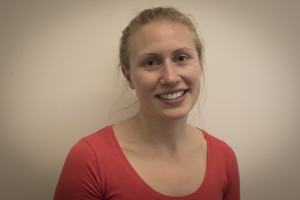This September is childhood cancer awareness month and today’s blog focuses on the subject of parental grief.
Today’s guest blog comes from Sarah Lea. Sarah Lea is a staff nurse in the Teenage and Young Adult Cancer Service at University College London Hospitals and a doctoral research student from the School of Health and Social Care at London South Bank University. Sarah’s PhD title is: The culture of teenage and young adult cancer care across four Principal Treatment Centres and their networks: BRIGHTLIGHT case study.
Getting back to ‘normal’: the long-term psychosocial impact of cancer in children and young people
As a staff nurse in teenage and young adult cancer services, I see many young people who are at the beginning, right in the middle of, and coming out the other side of their cancer treatment.
The gruelling and debilitating effects of cancer treatment are clear for us to see every day as we put our young people through weeks and months of chemotherapy, surgery and radiotherapy. I think something that we (by ‘we’ I am referring not only to health care professionals but also to wider society) are not as aware of, is the long-term effects of cancer on children and young people.
Many health care professionals get fixated on treating the cancer and alleviating the symptoms that come with the harsh treatments, in order to get our young people better and back into normal life and routine. However, it is very wrong of us to think that they are going to just pick up where they left off and resume ‘normal’ life again.
The psychosocial long-term effects of cancer, particularly on the younger generations who still have their whole lives ahead of them, can be catastrophic. Losing friends and falling away from peer groups is a big issue. Due to hospitalisation, appointments, feeling unwell and feeling fatigued, a lot of young people going through treatment will miss large periods of school, stop attending sports or activity clubs and stop going out to socialise with their peers. This can cause children and young people to feel isolated and alone. Cancer survivors often feel self-conscious, depressed and have lifelong fear of the cancer returning. I am just talking about the psychosocial issues here; I simply cannot even get into the long-term physical issues associated with cancer treatments.
Providing a supportive and social atmosphere is one of the key aims on the teenage and young adult unit that I nurse on. It provides an environment which gives young people the opportunity to be together throughout their treatment, and in their years of follow-up clinics, to support each other throughout their cancer journey. This peer support does not suit every young person; however it can be invaluable for some in the long-term. Some young people make life-long friends during their cancer treatment and find solace in being with others who have gone through a similar experience to themselves.
As part of the data collection for my PhD, I have been travelling around England talking to health care professionals working with children and young people, to ask them about their experiences working in cancer services. During the interviews I have conducted for my PhD, I interviewed a health care professional who has years of experience working with children and young people with cancer. She summarised our role as health care professionals in terms of providing care for children and young people with cancer to help them in the long-term. We need to “help young people to build resilience to help them go through adolescence as normally as they can and to achieve their full potential that they always had in them as a human being.” As a staff nurse, it is lovely to hear the positive survivorship stories of young people who are finally beginning to regain a sense of ‘normality’ to their life, achieving things like exams, great jobs, university or travelling the world. I feel proud of the young cancer survivors that we have treated to achieve these things, despite some of them having to overcome the on-going psychosocial impact of their previous cancer diagnosis.
Furthermore, during my PhD interviews, I spoke to young people of many different stages of their journey. One young lady that I spoke to had received two intense chemotherapy treatment protocols and was one year into remission. She talked about how life was for her now she is into survivorship; she said “you can live as normal of a life as, what normal, little, life it is…. normal is how we live our life now, like that’s what normal is to us, so we just have a funny outlook on what normal is compared to somebody else.”
This poignant statement is a reminder that the story does not end at the end of treatment ‘all clear’ scans for young cancer survivors. For many, the story will continue for years to come, if not for the rest of their lives. For health care professionals, I feel it is important for us to take some time to consider how we can best equip our patients for their survivorship years from an earlier stage. During the intense treatment phase is when we see our patients most regularly, therefore it would be the ideal time to provide this support and advice about survivorship and provide easy access to psychosocial support services where they are required. This has been spotted as a gap in provision by service providers and more research is currently being done and schemes piloted looking at how we can best support childhood cancer survivors in the long-term.
Sarah Lea
Contact email: leas2@lsbu.ac.uk
